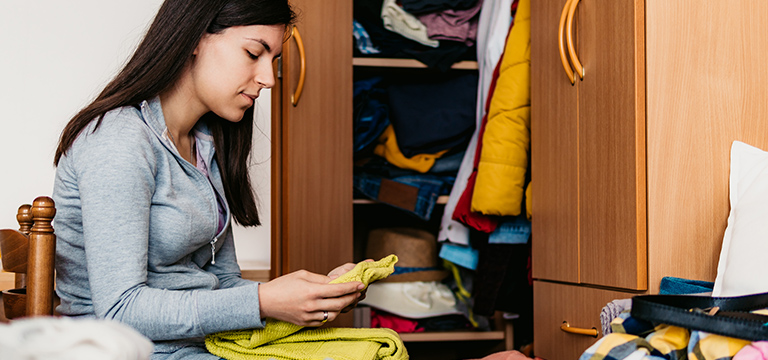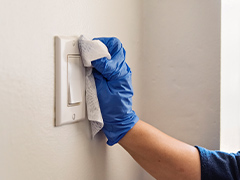Mess Equals Stress. How Clutter Affects Your Mental And Physical Health.

At one time or another we’ve all experienced a buildup of too much stuff. Whether an overflowing closet or a messy desk, this kind of clutter can actually negatively affect our mental and physical health.
The Mental Effects
In a study, women who viewed their homes as cluttered were more stressed. They had high levels of the stress hormone cortisol throughout the day. Those who described their home as well-organized had lower levels of cortisol.
Other research has shown that adults in their 50s who have too many piles of stuff are more likely to put off making decisions around how to trim it down. The study also found that all that stuff can make you less satisfied with your life. If your space is starting to look a little scattered, it’s better to straighten up as soon as you can rather than waiting.
When you’re surrounded by too much clutter, it can be harder to focus on important tasks. Several things are competing for your attention at once, making it harder for your brain to prioritize. If you can’t bear to part with your belongings, organizing and storing them may help cut out the extra noise.
The Physical Effects
Knickknacks can be big dust collectors. Having too many things can make it harder to keep your space clean. Accumulating dust from mites or pet dander can cause sneezing, wheezing and itchy eyes. Remove the junk for easier cleaning and fewer symptoms.
Too much clutter can also put you at risk for injury. A floor or staircase covered with boxes, piles of clothing and heaps of papers can be a physical hazard. Avoid the slips, trips and falls by keeping those spaces clear.
According to research, some people who live in cluttered or messy homes have also experienced a poorer "working memory." Your brain can only keep track of a few details at once for a short period. It can get overwhelmed if there’s too much going on.
If your home life is affecting your overall health and you’re overwhelmed, you can utilize telehealth services to speak to a behavioral health specialist.



